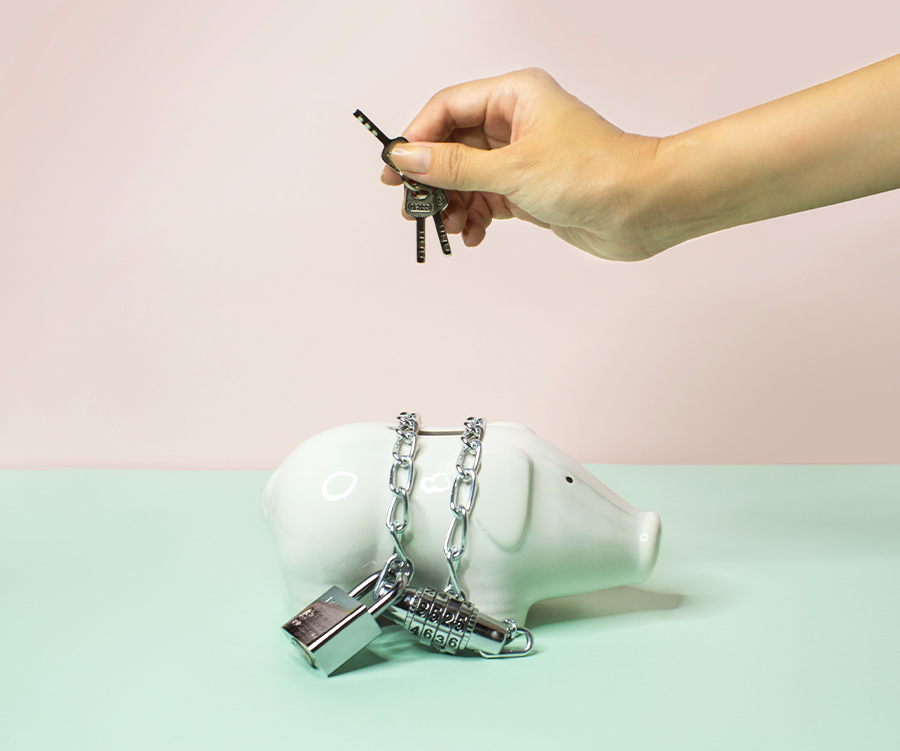
I share many things with my husband. Among them: a house, two gorgeous girls, a love for the beach and Bali holidays.
But one thing we don’t share is bank accounts.
Some friends find it strange — we’ve been together for 22 years so it’s not like we’re finding our feet in a new relationship — but I wouldn’t have it any other way.
In fact, I think it’s one of the smartest decisions I’ve ever made.
I’ve always been independent and initially earned more than him so it made sense for me to keep an account in my name at first, but as the years have gone on, I’ve found it even more beneficial to have something that’s mine and mine alone.
For starters, it means I can buy myself things I like without feeling guilty. It sounds like a trivial thing, but it’s rare for partners to prioritise and value the same “luxuries”.
For instance, he’d rather splash out on a new surfboard every couple of years, but I prefer smaller ‘treats’ in the shape of shoes and clothes more often. I’m not alone either, it seems; 75 per cent of retail transactions are made by women according to a MasterCard survey.
If we shared one account, these transactions would be a constant source of conflict — not because either of us is being controlling, but because we have different views on how to spend any money we have left over after the essentials (mortgage, bills, groceries, savings etc.) are paid each month.
The future also plays a big role in my need for financial independence.
I’m in a very happy marriage, but I have friends who are stuck in failing relationships and marriages primarily because they don’t have access to money outside of that relationship and the means to start over. It’s not just about the physical cash either, it’s having the confidence to know what to do with it.
I never want to feel trapped in a situation because of money (or lack of it).
I lost my dad when I was really young and I saw first-hand what it’s like to be vulnerable and lacking financial knowledge. Maintaining financial independence gives me the confidence to know I can cope with things; I’m less anxious about the future.
Having daughters, it’s also important that they see me dealing with and talking about money.
I want them to learn to be responsible, knowledgeable and accountable with money from an early age, and me playing an active part in the family’s finances, as well as my own personal finances, helps to reinforce that.
I take a sense of pride in the fact that they can ask me about money, not just my husband. It’s very different to how it was for my generation when we were younger.
I know separate bank accounts may not be for everyone, but for me and my husband, they really work. I love the independence and freedom this setup gives me, plus the example it allows me to set for my daughters.
I do sometimes question if we’re not being as open as other couples who completely combine their finances, but we’re 100 per cent a team in other ways. And if it means I get to avoid the “You paid how much for that dress?” question, I’m all for it. My husband may be the better saver, but he’s got no idea how much clothes cost!
Financial independence in a relationship:
DO work out what works for both of you. A ‘yours, mine and ours’ approach is often sensible as it means both partners contribute equally (or whatever has been agreed to) to household expenses, savings accounts and shared assets straight after pay day, and then both partners have their own individual bank accounts too.
DON’T use it as a way to conceal bad spending habits. It might be tempting to shop up a storm, but it’s important to be disciplined as it goes both ways: you get to buy what you like with a personal account, but you’re also personally (and solely) responsible for any debts you accrue.
DO develop some mutual money goals. While it’s important to have financial independence on a day-to-day basis, some shared money goals will ensure you continue to talk about money as a couple. It could be a holiday, an investment property or a monthly date night that you go halves on.
DON’T let people question the trust in your relationship. Financial independence doesn’t signal a lack of love, trust or transparency. While financial independence is important when people find themselves in an unexpected situation (be it a separation, a sudden death or an abusive financial situation), it’s also a decision that can come from a frank and fruitful chat about money that you have as a couple.
DO seek professional help for guidance. If you’re unsure how to manage either your personal or joint funds, seek help from your bank online, via phone or directly in the branch. Commonwealth Bank allows you to book an appointment with a financial planner online who can help you with some short-term and long-term goals.
**This article was written by Michelle, a 42-year-old mum of two who works in advertising in Sydney. Names have been changed to protect privacy.*
To help improve your financial wellbeing, please visit financiallyfitfemales.com.au. Proud partner, CommBank. Always consider your personal circumstances before acting on financial advice

.jpg)
